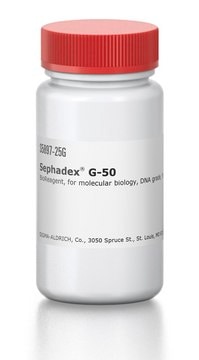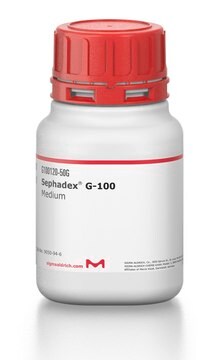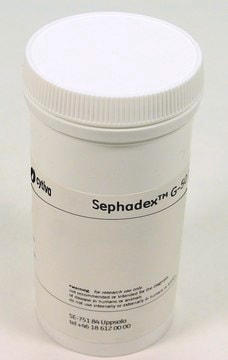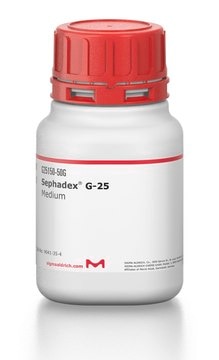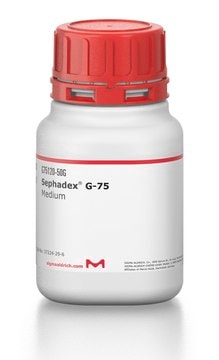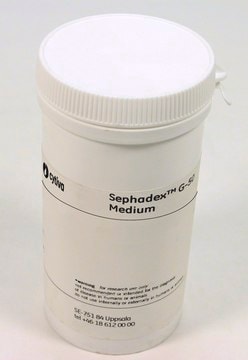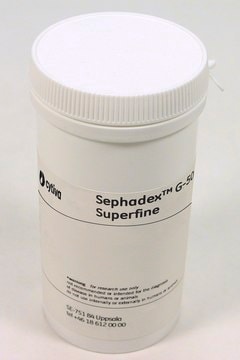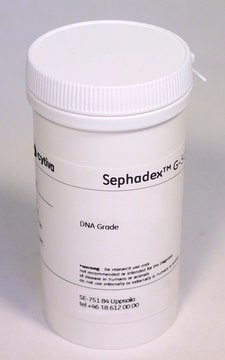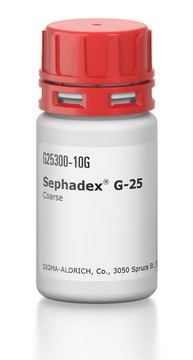S6022
Sephadex® G-50
BioReagent, for molecular biology, DNA grade, medium
About This Item
Produits recommandés
Qualité
DNA grade
for molecular biology
Niveau de qualité
Gamme de produits
BioReagent
Forme
beads
Gonflement
1 g swells to 9-11 mL
Diamètre des billes
50-150 μm
Dimension de pores
exclusion limit (20 bp dsDNA; (rA)20)
pH
2-10
Activité étrangère
DNase, RNase, none detected
Température de stockage
room temp
Chaîne SMILES
O1C(C(C(C(C1CO)O)O)O)OCC2OC(C(C(C2O)O)O)OCC(O)C(O)C(O)C(O)C=O
InChI
1S/C18H32O16/c19-1-5(21)9(23)10(24)6(22)3-31-17-16(30)14(28)12(26)8(34-17)4-32-18-15(29)13(27)11(25)7(2-20)33-18/h1,5-18,20-30H,2-4H2
Clé InChI
FZWBNHMXJMCXLU-UHFFFAOYSA-N
Vous recherchez des produits similaires ? Visite Guide de comparaison des produits
Description générale
Application
Caractéristiques et avantages
- Excellent recovery
- Minimal sample dilution
- Quick and easy to use
Informations légales
Produit(s) apparenté(s)
Code de la classe de stockage
11 - Combustible Solids
Classe de danger pour l'eau (WGK)
WGK 3
Point d'éclair (°F)
Not applicable
Point d'éclair (°C)
Not applicable
Équipement de protection individuelle
Eyeshields, Gloves, type N95 (US)
Faites votre choix parmi les versions les plus récentes :
Déjà en possession de ce produit ?
Retrouvez la documentation relative aux produits que vous avez récemment achetés dans la Bibliothèque de documents.
Les clients ont également consulté
Notre équipe de scientifiques dispose d'une expérience dans tous les secteurs de la recherche, notamment en sciences de la vie, science des matériaux, synthèse chimique, chromatographie, analyse et dans de nombreux autres domaines..
Contacter notre Service technique


